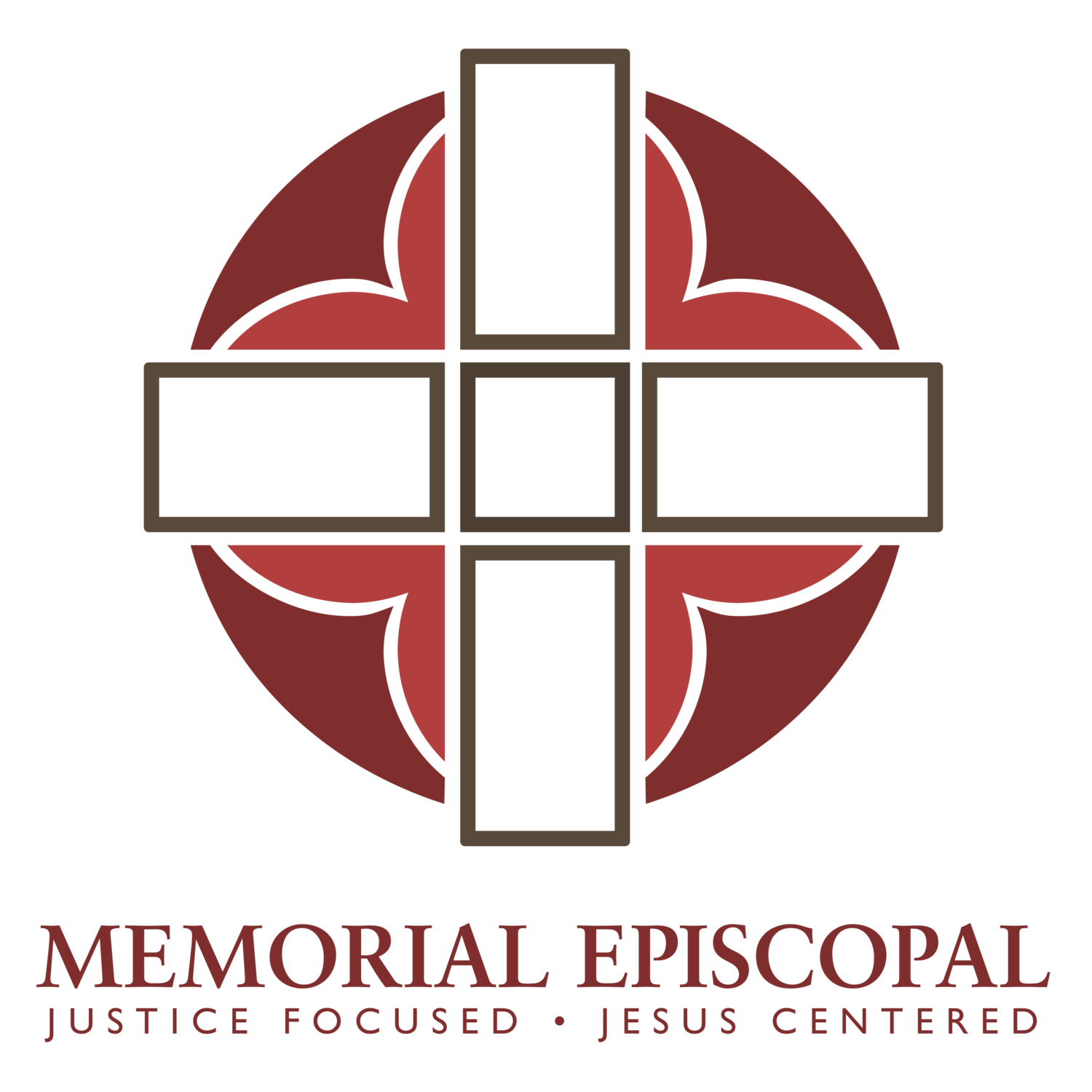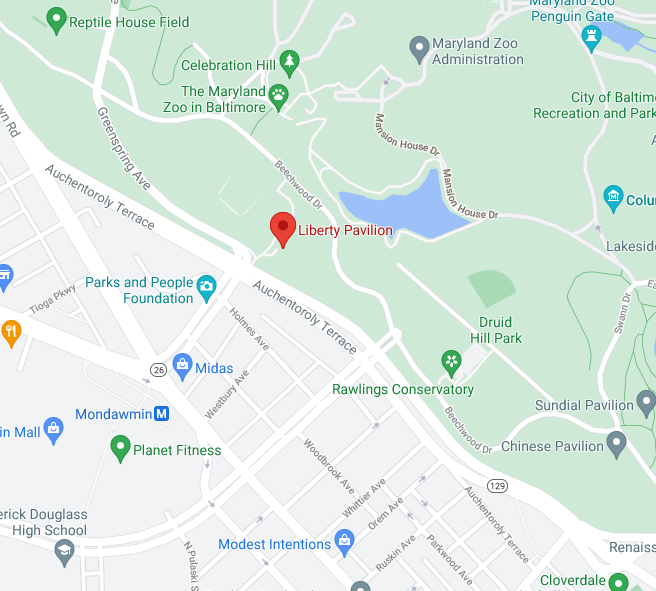“Be Thou My Vision”
Memorial’s Future: A Model Parish for the 21st Century
I want to ask you a question. Do you want Memorial to be here in 20 years? In 50? In 100?
This seems like an easy question — but its not. I mean we all want to say yes. But spend some time thinking about what this really means.
50 years ago Memorial. 1969. Memorial was one of the last bastions of southern conservatism in this city. Most segregationists and Jim Crow partisans had already moved out of the city or into northern suburbs. Or become more entrenched in traditionally ‘white’ areas of the city. We were still opening advocating for segregated neighborhoods. Segregated schools. Segregated lives.
We were down to maybe 20 or so active members. And the ‘bounds’ of what we called ‘Bolton Hill’ were very small. From Lanvale to McMechen, and Bolton to Park Ave.
It took new leadership, with new vision, new hope and in many ways a new theology of the Church AND the Kingdom of God to ensure this place made it the next 50 years.
Now I don’t say all this just to bring up ‘dirt from the past’ or to ‘harp on the ‘race stuff’ again’. But to draw your eyes to how serious a question this is. ‘Do you want Memorial to be here in 50 years?’ Is another way of saying ‘are you willing, prepared, able for this place to change radically, drastically, in order for that to happen.’
And you may think ‘eh we don’t need to change THAT much. Things are pretty okay.’ And that’s true. We might be okay for ten years. Or 15 years. But the landscape for churches in Baltimore and in the US is very challenging.
I will spell out some of those challenges BUT - first let me give you a little secret to start. I think that Memorial can be just fine. And moreover that we can become a leading example of a thriving 21st century Episcopal Church. And I’ll tell you why.
But, first the Challenges.
The Challenges
7 Episcopal Churches within 1 mile of us. 16 within 3 miles.
Three Beautiful Churches within two blocks, all with Similar politics, theology, and membership.
We are 95% white in a city that is 65-70% African American.
We inhabit an aging physical plant with increasing and escalating capital costs.
We have a very small endowment, and no large benefactors able to keep us going on their own.
Younger generations have less wealth than those before them and are much more transient. So the young people we cultivate in this church are more than likely going to become active members and leaders in churches in Detroit, Miami, New York, Los Angeles, - even Cincinnati. But unlikely to be here.
Church participation is decreasing across the board.
Baltimore has a declining population, a rising crime rate, and what can only be described as a dearth of serious political leadership.
The Potential
As Christians we believe that challenges like this are not new, and indeed offer up the potential to do great things. Its no worse than the challenge facing churches in the 1700’s in England, when Church attendance had fallen to almost negligible levels. And not nearly as bad as what faces Christians in the Middle East and China today. But it does require a response.
The reality is that we can longer operate as we did in the 19th century. Or the 20th century. We need to take a forward looking view of the Church and the World if we want to continue as a viable institution in the 21st century.
We can’t afford to be a niche church for middle class white liberals.
We can’t afford to ignore the communities around us - in worship, ministry or community.
We can’t pretend that race doesn’t matter at those doors or in this city.
We can’t be afraid to grow, and to invite others to be a part of that growth.
We can’t be afraid of the change that inevitably comes with growth.
We ALSO have a tremendous opportunity before us. In 2021 the entirety of the Episcopal Church will be coming to Baltimore. More than 10,000 Episcopalians will descend on the Inner Harbor for General Convention 2021 and they will be looking for ‘Good News’. In fact the Presiding Bishop Michael Curry has already declared that the focus and theme of 2021 will be Racial Reconciliation. And everyone will be looking for examples of how to do that because if you haven’t noticed, we haven’t quite gotten it right yet.
So what would it be LIKE - if every person who came to General Convention wanted to come here to see what YOU were doing?
What would it be LIKE - if every vestry wanted to follow our vestry’s model for leadership and change?
What would it be LIKE - if every Church wanted to imitate what we are doing with schools, community orgs, neighbors, etc.?
What would it be LIKE - if every Episcopalian wanted to know Jesus like we know Jesus? Study the Bible like we study the Bible? Grow in faith like we are growing in Faith?
Our advantages
Small community in a big city.
Long history of partnership.
Already very good at sharing space.
‘Sanctified by its use’ understanding of worship space
Broad understanding of membership
Have lived out a commitment to inclusivity uninterrupted for the better part of 40 years.
What Holds us Back?
Thin theology.
Understanding and Engagement with Scripture
Embedded Structural Racism
And Having a heart for Jesus
You see all those things I listed as problems above? They aren’t really problems for us. They don’t make it easy, sure. They could torpedo the whole thing. But that isn’t what is holding us back.
It is our thin theology that is holding us back.
You see most American churches. Certainly most Episcopal Churches are built on a ‘if you build it they will come theology.’
Have good services, a Nice building, well prepared bulletins, a full calendar of programs, good ministries and people will show up. Start a school for some extra cash. And make it work.
Very little talk about Jesus. Very little talk about the Kingdom of God. Very little talk about scripture.
The result? Social clubs! Which is why if you look at Episcopal churches you have ‘the country club church’ ‘the horse church’ ‘the lower middle class church’ ‘the young kids church’ ‘the gay church’ ’ ‘justice church’ and if you are Lucky in most dioceses ‘the black church’.
But the problem with this model of Church success is that.... we don’t need it anymore! (Also its bad theology and an affront to Jesus)
We don’t need because other people do it better. And no one wants a Church that does something less well than they can get it on the open market.
And that thin theology has made racism acceptable. Tolerable. Normal. You see ‘thin theology’ allows cracks to form in our formation where racism can continue to creep in. Because it has been a part of the Church not just Memorial but the whole American Church for so long, since Columbus!, that it is difficult to stamp out. We must devote more time to breaking down the realities of white supremacy in our own institutions in order to become the Kingdom of God Jesus is looking for.
Which means we should spend LESS time trying to repeat what the secular world does, and more time doing what God is asking of us. We don’t need Church happy hours - not just because it sends the wrong message and it leaves no space for those in recovery and it could lead to some really problematic things happening.. we don’t need church happy hours because bars are REALLY good at happy hours!
Church no longer needs to be a place where people can find jobs, relationships, investment clubs, etc. Etc. Because other people do those things better. There is an app for that!
But there is no app for coming close to Jesus. There is no app for ending racism.
These are the kinds of things the world needs us for. These are the kind of things that Baltimore needs us for.
And this is what I am asking you all to commit to today.
To becoming a Jesus Centered, Justice focused congregation.
To committing to becoming a Racial Reconciling Congregation.
So where COULD we go? Okay close your eyes. Imagine it is three years in the future. Memorial’s congregation is something like 50/50 black white. On any given Sunday there are 200 some people in the congregation. Our church doubles as a conference venue, a yoga studio, a concert hall and a children’s center in the summer. Memorial players does a summer kids camp and produces plays not only here but in the newly opened ‘Transfiguration Center’ on Eutaw Place. Samaritan Community is running a cooking course for people coming out of the Criminal Justice System and getting 100+ people employed a year. After a period of discernment Memorial has decided to remove the plaques to the slave owners that built this Church, and as a beginning step offers free space use to the Baltimore NAACP. We are on the verge of, at the 2021 annual meeting, voting on changing the name of Memorial to Transfiguration - as we become yoked to a historically black parish here in Baltimore. We may already have a co-rector or associate Rector we are sharing with another congregation.
The line between neighborhood and church is so blurry its hard to tell where one begins and the other ends.
Most importantly, neighbors and strangers, black and white, see Memorial as a leader not only in making Baltimore a livable city today, but in working to repair and restore the evils done in the past in the name of Jesus - the evils of segregation, of Jim Crow, of racism, and of the continue impact that structural racism has had at Memorial, In Bolton Hill and in Baltimore.
Asw e continue to undue all the evils of our past.,To work back on those issues we will be able not always to reverse, the damage - but to heal, to restore and to reconnect. And in the process we can become leaders in this effort. Leading the community. Leading the city. But with good theology. Leading to a better church and a better world.








